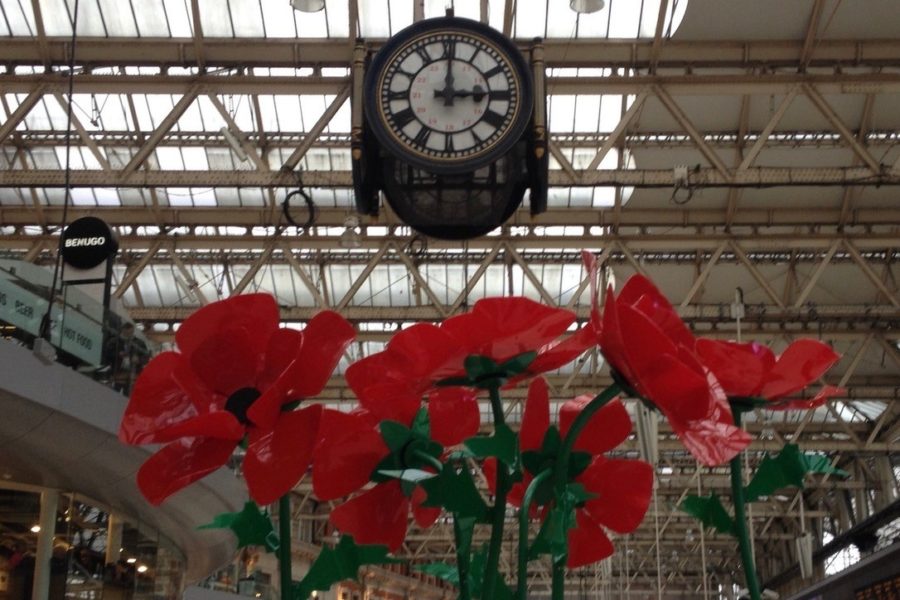This has been a solemn week in what has been a desperately sad month in a desperately sad year.
On 11 November the UK like many other countries commemorates Remembrance Day, or Armistice Day, which originally marked the guns falling silent at the end of the First World War. Every country has its own way of commemorating past conflict. For us 11 November is about remembrance. As we say at our traditional commemoration: At the going down of the sun and in the morning, we will remember them.
Over past weeks I and other British diplomats have laid poppy wreaths across this country – as we do in many others – in memory of the British service people that gave their lives in two World Wars and other conflicts. On 11 November each year we usually take part in an act of remembrance in the Commonwealth War Graves Cemetery in Belgrade, as well as attending similar French, Russian and Serbian ceremonies. The Commonwealth War Graves Cemetery in Belgrade is the final resting place of more than 400 soldiers, aircrew and sailors, killed during the Second World War and buried here, far from their homes and families in the UK, Canada, Australia, New Zealand, South Africa, Poland, Cyprus and Italy.
Since I came to Belgrade a year ago I have read about many of these young lives, and thought about how these young men came to be buried here. One young man, awarded the Military Cross, one of my country’s highest honours, was a maths teacher who had played cricket for my home county. Another, the first British officer to fall in Yugoslavia in the Second World War, was the son of a father killed at Passchendale in Flanders during the First World War. Many of those buried in Belgrade were aircrew, shot down whilst dropping supplies into occupied Yugoslavia. Each life cut short has its own story.
Very sadly this year, with Belgrade, like so many of the world’s great cities, facing ever growing challenges containing the spread of COVID-19, we were not able to pay our respects together as a community and commemorate our war dead in the traditional way. But on Wednesday morning I went quietly to the cemetery in Belgrade, with Canadian and Australian colleagues, to lay a wreath of poppies on the war memorial. The same afternoon our British Defence Attaché Colonel Nick Ilić went to the city of Niš to lay a poppy wreath in memory of British military and medical personnel who died in the First World War and are buried in the Commonwealth War Graves Cemetery there.
When I was a child we called 11 November ‘Poppy Day’. The red poppy is for us in the UK a symbol of remembrance, recalling the wild poppies that sprung up across the Western Front battlefields like Passchendaele after the guns fell silent. In our national ceremony of remembrance, at the Cenotaph, a simple, graceful monument that stands in London outside my foreign ministry and No 10 Downing Street, our Royal Family, senior politicians, the heads of our armed forces, and heads of Commonwealth diplomatic missions, lay poppy wreaths, whilst a military band plays solemn music, including Henry Purcell’s beautiful lament, recalling its words: When I am laid in earth…..remember me. Across the country a simple version of the same service is repeated at town and village war memorials.
But is not only the dead of past conflict that we have been mourning over these past weeks. After devastating terrorist attacks in France and Afghanistan, Vienna, the beautiful city that for three and a half years gave me, like so many diplomats from around the world, the warmest possible welcome, suffered death and violence on its streets.
At the same time, the coronavirus has continued to spread its deadly wings around the world. Both my home country and my host country are battling rising numbers of infections – with our armed forces playing an important role in fighting that battle too. So many families, including my own, are mourning untimely deaths. In the past week communities in the UK and the Western Balkans have also been feeling the loss of respected spiritual leaders and other well known figures. So many lives to mourn, so many lives to remember.
The boy choristers of the Queen’s Chapel Royal sing each year at the London cenotaph words that remind us all of our mortality: ‘Time, like an ever rolling stream, bears all its sons away’. The poppies that we lay, and the poppies that we wear at this time of year, help us to remember those that have been borne away before their time. Laying my poppy wreath this week reminded me too though that the red poppies that sprang from fields that had seen so much bloodshed and suffering are symbols of remembrance, they are also a sign of new life, and a sign of hope for the future.

